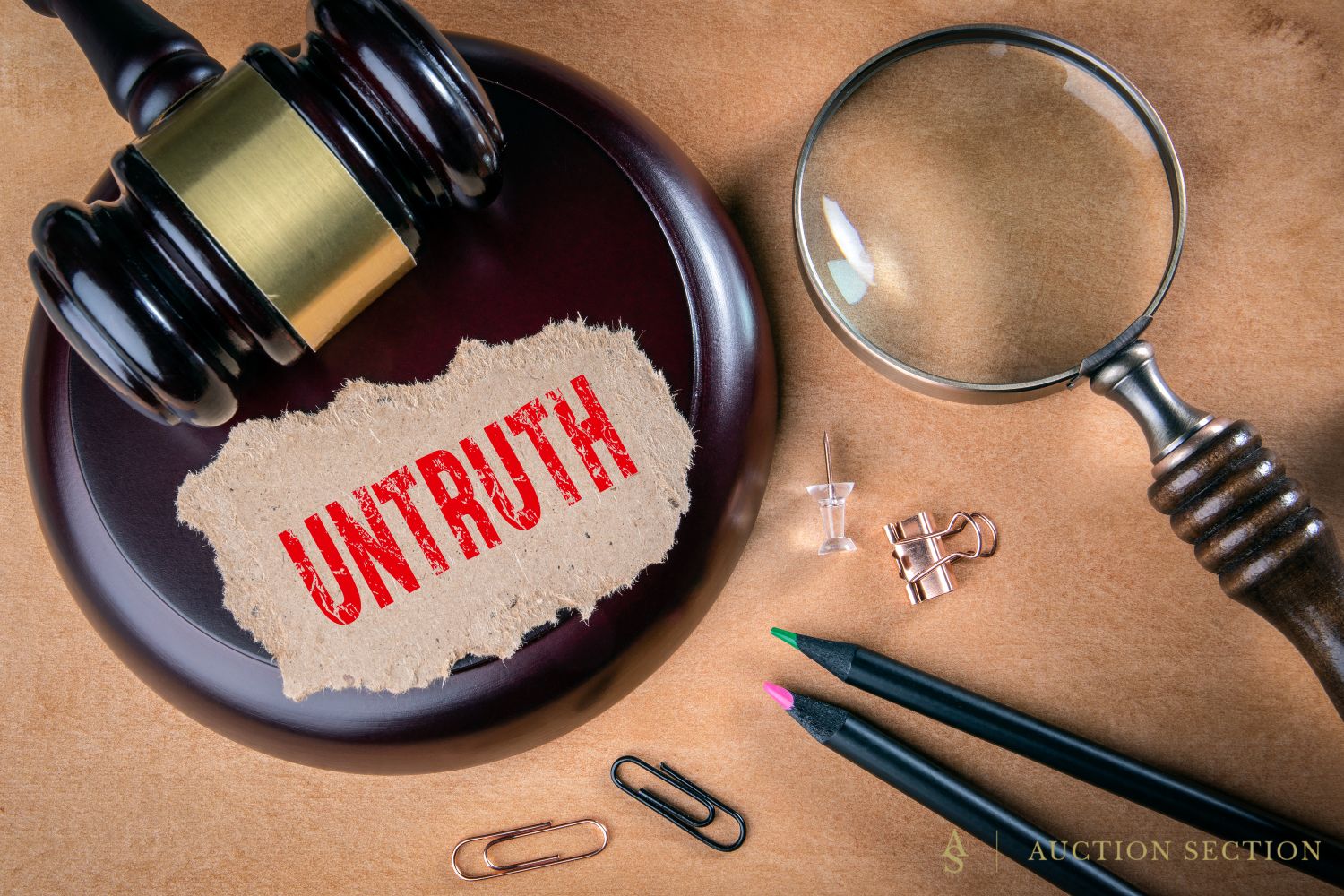
Land auctions have become an increasingly popular method for selling property, especially in Texas, where a diverse and dynamic real estate market thrives. However, despite their growing popularity, many misconceptions about the land sold at auction persist. These myths can deter potential sellers from taking advantage of the unique benefits of auctions.
This article unpacks the top myths about the land of sale at auction. It reveals the truth, empowering landowners in Texas to make informed decisions that maximize their property’s value and the selling experience.
Myth 1: Selling Land at Auction Means Lower Prices
Many sellers worry that auctioning land will force them to accept low offers. This misconception overlooks the powerful competitive dynamic that auctions foster.
When land is auctioned, bidders compete openly, often sparking bidding wars that drive the final sale price above market expectations. In Texas, competitive bidding is standard due to a strong interest in agricultural, recreational, and commercial properties.
Auction marketing strategies play a crucial role in attracting serious buyers who are ready to bid competitively. Sellers benefit from professional promotions that reach targeted investors, ranchers, and developers. This exposure ensures your property is not undervalued due to limited buyer visibility.
Table: Auction vs. Traditional Sale Price Comparison in Texas
| Sale Method | Average Final Price (% of Market Value) | Buyer Competition Level | Typical Time to Sell |
| Auction | 100-120% | High | 30-45 days |
| Traditional Sale | 90-110% | Moderate | 90-180 days |
The data highlights how auctions often yield higher prices in less time, debunking the myth that auctions result in lower proceeds.
Myth 2: Auctions are Only for Distressed or Foreclosed Properties
Another common myth is that auctions are reserved for distressed properties or foreclosures. In reality, land auctions encompass a wide variety of property types and conditions.
Texas land auctions regularly feature commercial plots, prime agricultural tracts, recreational land, and even residential development parcels.
Healthy market conditions in Texas enhance the appeal of auctions. Sellers use auctions to leverage market demand, quickly transferring ownership while ensuring transparency and fairness. Whether you own 10 acres of farmland or 500 acres of timberland, auctions provide a viable and often preferable selling option.
Myth 3: Selling at Auction Means Losing Control Over the Sale
Many sellers hesitate because they believe auctions remove their ability to control the sale terms or price. This is a misconception that needs clarification.
Sellers maintain significant control over essential aspects of the auction. You set the auction date, establish a reserve price (the minimum acceptable bid), and approve marketing plans. Sellers also decide bidder qualifications to ensure only serious buyers participate.
This control allows sellers to protect their interests while benefiting from the transparent and competitive auction environment. At the Auction Section, sellers regularly collaborate with auction professionals to customize terms that fit their goals.
Myth 4: Auctions Require a Significant Amount of Time and Effort
A common concern is that preparing for and managing an auction is time-consuming and labor-intensive.
The truth is, professional auction services simplify the process. Texas auction firms offer comprehensive support, encompassing property appraisal, marketing, legal documentation, and auction management. This turnkey approach significantly reduces seller effort.
The Auction Section collaborates with local experts in Dallas, Austin, and Houston to ensure that sellers have seamless and efficient experiences. Sellers can rely on these professionals to manage everything from start to finish, saving time while maximizing results.
Myth 5: Auctions are Too Risky and Unpredictable
Sellers often perceive auctions as risky due to uncertainty about the final prices or the turnout of buyers. However, the auction process is highly transparent and structured to minimize risk.
Clear rules and real-time bidding facilitate price discovery, while reserve prices safeguard sellers against unwanted low offers. The Auction Section’s online platforms provide broad exposure and pre-auction bidder registration, improving the predictability of turnout.
Real-world cases demonstrate that many sellers achieve or exceed their expected prices with fast and straightforward closings. The competitive bidding environment reduces price volatility and eliminates prolonged negotiation periods typical in traditional sales.
Myth 6: Only Local Buyers Participate in Land Auctions
It’s a misconception that only local buyers attend land auctions. Modern online platforms have revolutionized accessibility.
Online auctions hosted by the Auction Section attract bidders from nationwide and international locations. This broad reach opens markets beyond Texas, increasing buyer diversity and competition.
Marketing strategies encompass digital ads, email campaigns, and social media targeting, enabling us to reach ranchers, investors, and developers across the U.S. and beyond. This expanded buyer pool increases the chances of selling quickly and at a premium price.
Myth 7: Auctions Limit the Buyer Pool
Contrary to belief, auctions do not restrict buyers but rather expand and diversify the buyer pool through targeted marketing.
Auction Section uses data-driven marketing to reach ideal buyers based on property type and location. Techniques include geo-targeted ads, industry-specific outreach, and partnerships with reputable real estate networks, such as the Texas Auctioneers Association.
This comprehensive approach ensures a broader, more qualified audience, providing sellers with multiple competitive bidders rather than a limited market.
Myth 8: Selling Land at Auction Doesn’t Allow Time for Due Diligence
Many sellers and buyers believe that auctions rush the process, leaving little or no room for proper due diligence, inspections, or legal review, which can cause hesitation.
This misconception overlooks the fact that reputable land auctions, especially those facilitated through platforms like Auction Section, provide ample time and resources for due diligence before the auction date. Sellers disclose all relevant property details upfront, and prospective buyers are encouraged to conduct thorough inspections and review documents before bidding.
In Texas, auction listings often include detailed surveys, title reports, soil tests, and environmental assessments. Auction Section also offers expert guidance and supports buyers in accessing this critical information well in advance of the auction day.
By allowing sufficient time for due diligence, auctions ensure that both sellers and buyers enter the transaction with confidence, thereby protecting their interests and reducing the likelihood of post-sale disputes.
Frequently Asked Questions (FAQs)
Typical auction fees may include a seller’s commission (usually a percentage of the final sale price), marketing costs, and administrative expenses. The Auction Section provides transparent fee structures upfront, so sellers understand all costs before committing.
Yes. Sellers set a confidential reserve price—the minimum acceptable sale amount. If bidding does not reach this price, the property may not sell, protecting sellers from underselling.
If the reserve price isn’t met, the seller can negotiate directly with bidders post-auction or relist the property for a future auction. Many sellers choose this option to maintain flexibility.
Yes. In most cases, the highest bid that meets the reserve price constitutes a binding contract. Sellers should review terms carefully with auction professionals before listing.
Why Choose the Auction Section for Your Texas Land Auction?
Selling land at auction is a powerful strategy to maximize value, speed, and transparency. At Auction Section, we specialize in Texas land auctions, offering expert marketing, nationwide buyer outreach, and professional auction management tailored to your property’s unique characteristics.
Don’t let myths hold you back from a smarter, more efficient land sale. Explore our Land Auctions in Texas and discover how our experienced team at Auction Section can help you achieve the highest value for your land through expert auction services.


